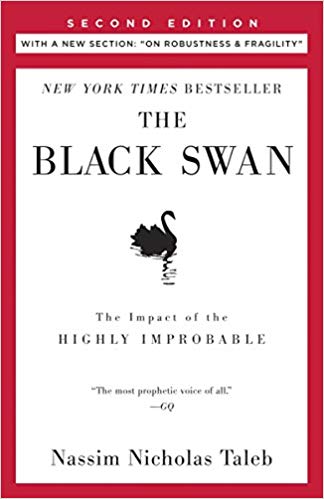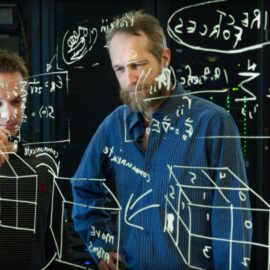

This article is an excerpt from the Shortform summary of "The Black Swan" by Nassim Taleb. Shortform has the world's best summaries of books you should be reading.
Like this article? Sign up for a free trial here .
What is a dynamic system? What is dynamical systems theory? Why do dynamic systems make it so hard to make accurate predictions?
A dynamical system (dynamic system) is one in which an array of inputs affect each other. Whereas prediction in a system that contains, say, two inputs, is a simple affair—one need only account for the qualities and behavior of those two inputs—prediction in a system that contains, say, five hundred billion inputs is effectively impossible.
We’ll cover the most famous dynamic system examples and explore why dynamical systems make it so hard to make accurate predictions.
Dynamic Systems
Dynamic System Example: The most famous illustration of a dynamical system’s properties is the “butterfly effect.” This idea was proposed by an MIT meteorologist, who discovered that an infinitesimal change in input parameters can drastically change weather models. The “butterfly effect” describes the possibility that the flutter of a butterfly’s wings can, a few weeks later and many miles distant, cause a tornado.
Poincaré’s Nonlinearities
Henry Poincaré, arguably the most highly regarded mathematician of the late 19th-century in France, contributed to the theory of unpredictability by proposing the existence of nonlinearities—small phenomena that, as time goes on, can have profound consequences.
Dynamic System Example: A seminal illustration of the concept is the “three-body problem.” In a planetary system consisting of two planets (bodies), predictions about those planets’ motion are easy to make: One need only account for the relation between the planets. But if a third body enters the equation—perhaps a comet, passing between the two planets—the relation changes. Although the comet’s effects may not be visible at first, the tiny forces it has exerted on the planets will compound with each cycle of the system, potentially resulting in massive changes. This is another demonstration of effects in a dynamic system.
Each of these dynamic system examples illustrates the difficulty of making accurate predictions in a “dynamical system,” wherein there are multiple variables and even slight changes can drastically alter results. When it comes to dynamical systems, Poincaré noted that the properties of the system can be observed and discussed, but there’s no way to compute—to use numbers—to describe the system.
Suffice it to say, there is no more dynamic system than human society—Extremistan.
Hayek and Dynamic Systems
In a classical socialist society, all economic decisions—allocation of resources, setting of prices, etc.—are made by a single entity. Hayek believed that a dynamical system like the economy was simply too complex for a single entity to master.
Our Information Is Always Incomplete
Mathematicians and philosophers draw a distinction between “true randomness” and “deterministic chaos.” A “random” system is one whose operation is always and forever impossible to predict. A “chaotic” system is one whose operation could be predicted, but whose complexity makes prediction so difficult that it’s effectively impossible. That is, if we had the right information, we would be able to make sense of “chaos.”
Taleb notes that, for normal people trying to make predictions about their stock portfolio, for example, or the appreciation of the value of their house, there’s no difference between “true randomness” and “deterministic chaos.” That’s because when we’re faced with a dynamic system, we always lack the necessary information to decide whether it’s truly random or simply chaotic.
Such is the case with history as well: Perhaps each major historical event conforms to some incredibly complex plan—that is, perhaps history is just chaotic, not random—but we’ll never have enough information to discern that plan. This is due to the dynamic system of society.
———End of Preview———

Like what you just read? Read the rest of the world's best summary of "Black Swan" at Shortform . Learn the book's critical concepts in 20 minutes or less .
Here's what you'll find in our full Black Swan summary :
- Why world-changing events are unpredictable, and how to deal with them
- Why you can't trust experts, especially the confident ones
- The best investment strategy to take advantage of black swants






